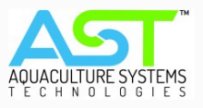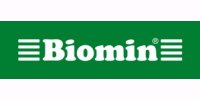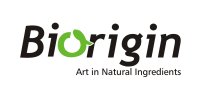JWAS Moving to Open Access

Dear WAS Members,
The WAS Board has recently approved a proposal to make JWAS a fully Open Access (OA) journal, effective January 2021. This decision was made after more than a year of analysis, deliberation, and negotiation with Wiley Publishers. The logistical and financial outcome of this decision will be carefully monitored over the next three years.
The 2019 survey of the WAS membership conducted by the JWAS editorial leadership showed strong support to move the journal to OA so that the scientific content, while maintaining its academic rigor, would be widely available worldwide.
This change will indeed make all JWAS content available to all readers worldwide free of charge and is consistent with the society’s service to its members and its mission of:
- “promoting the educational, scientific, and technological development and advancement of aquaculture throughout the world”
- “gathering and disseminating technical and other information on aquaculture worldwide”
This change can be expected to increase quality, content exposure, paper citations and impact. Also expected will be an increase in international submissions.
The high standards and rigor of the JWAS peer review process will continue to be maintained by the JWAS Editorial Board and, as always, the focus will be on highest quality papers that make a substantive contribution to the growth and development of aquaculture worldwide.
An Author Publication Charge (APC) of $2,100 for manuscripts published by non-WAS members will apply from January 2021. For WAS members, the APC will be $1,680, a discount of 20%.
All authors are eligible to apply for a fee reduction or waiver. Wiley and JWAS will provide an array of opportunities for financial relief to ensure authors are able to publish, once the review process has resulted in a recommendation to publish.
Consistent with the mission of WAS, it is extremely important to us that all researchers will be able to submit quality papers to JWAS - irrespective of their ability to pay the APC cost.
Transparency is imperative in this change and will be achieved via a comprehensive information strategy beginning with this communication to all members of WAS. This communication will also be sent to all previous authors of JWAS publications. Efforts will be devoted to inform the wider research community. As needed, more information will be provided during the coming weeks and months.
Below are some basic FAQs that are also posted on the JWAS website at Wiley Online Library. If you have any comments or questions of clarification, please feel free to contact me at MatthewS@was.org.
Kind wishes
Matt Slater
Executive Editor, Journal of the World Aquaculture Society
FAQ
The Editorial Team of JWAS have negotiated a proposal with the publisher Wiley to transition JWAS to a fully Open Access journal in January 2021.
Open Access means that JWAS will be made available free of charge to all scientists, farmers, students and other individuals worldwide who can access the Internet.
This is an important development in fulfilling the WAS vision and meeting the first two WAS mission priorities of “promoting the educational, scientific, and technological development and advancement of aquaculture throughout the world” and “gathering and disseminating technical and other information on aquaculture worldwide”. This will increase JWAS impact beyond the members, increase citations and Impact Factor and make the JWAS back catalogue widely used.
Open Access means that authors will need to pay a fee akin to a page charge to publish accepted manuscripts in JWAS, using money from their funders or their employers or elsewhere. The fee established by Wiley is within a competitive range for open access charges, and WAS members will receive a 20% discount. Authors from developing nations are eligible for greater discounts or waivers. Details are available in the following FAQs.
We support this proposal for a number of reasons:
- JWAS must change in order to remain fit-for-purpose, profitable and become a top tier aquaculture journal in a changing publishing landscape; funders are demanding greater transparency in science worldwide; the public expect science and information to be readily available to everyone everywhere; subscriptions are decreasing;
- A move to Open Access was supported by more than three quarters of members in the JWAS survey last year. This move will be widely supported by the broader scientific community too, and expedited by funding agencies worldwide. Many governmental funding agencies and institutes worldwide are funding Open Access publication.
- Among the changes, most of which are expected to be positive in terms of Impact Factor, Quality of Submissions, Downloads and Reads and profitability one thing will remain constant, namely our scientific rigour. The peer review process and the quality of the papers we publish will be maintained throughout, in line with the WAS Mission.
This is a significant change for JWAS, but an important advancement. Please refer to ourFAQs below if you have questions or concerns, or simply contact Matt Slater (MatthewS@was.org) or Carole Engle (cengle8523@gmail.com).
















